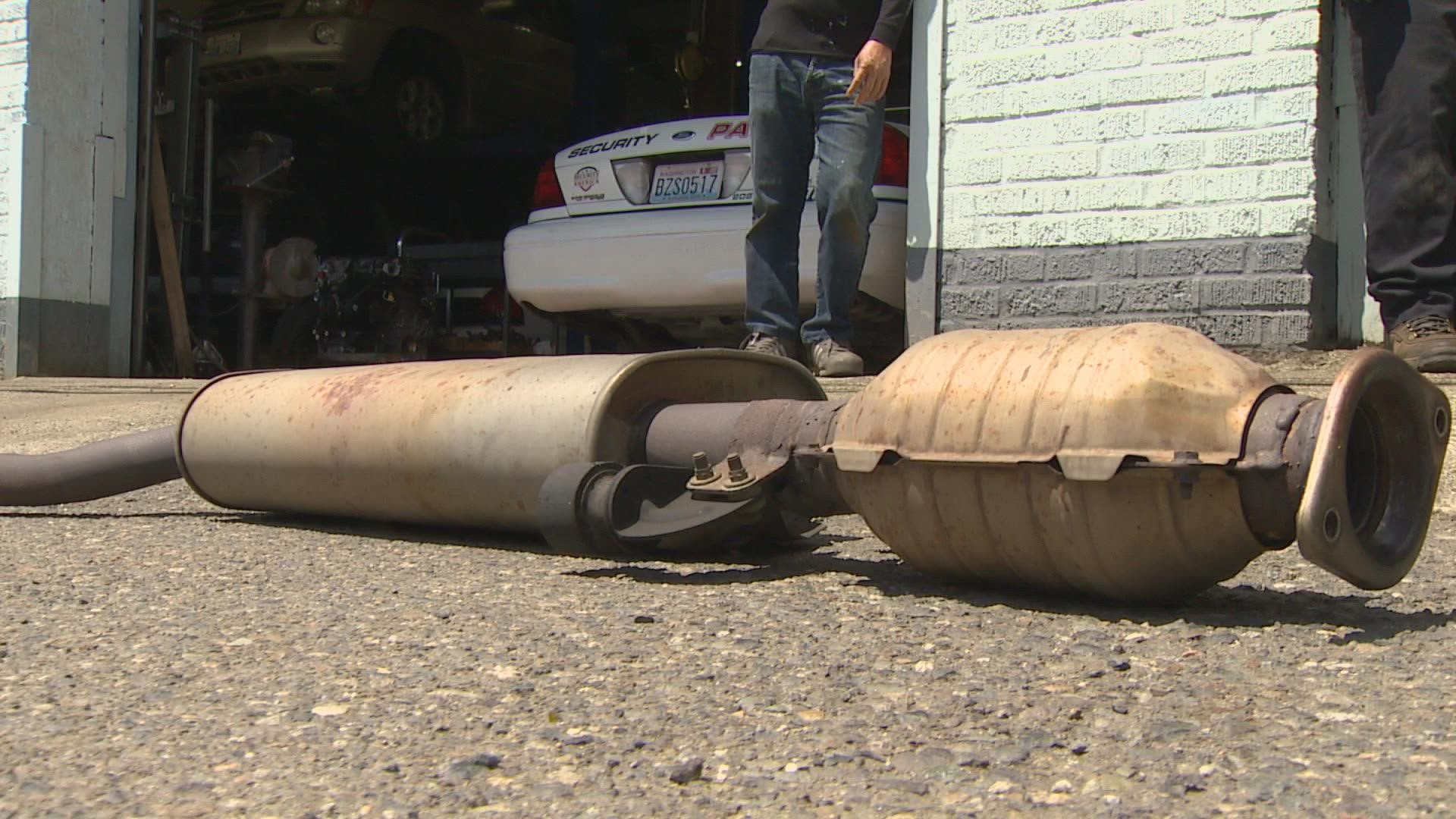SEATTLE — Several new laws went into effect in Washington state on Friday, July 1, 2022.
From tighter gun laws to transportation investments and clean energy incentives, here's what you need to know.
SB 5078: Ban on sale of high-capacity magazines
Senate Bill 5078 will not ban the possession of high-capacity magazines but it will prohibit the sale and distribution of such magazines.
A high-capacity magazine includes magazines that can accept and feed more than 10 rounds of ammunition as defined by the Washington state Legislature.
Violations will be a gross misdemeanor, punishable by up to 364 days in county jail and a maximum fine of up to $5,000, or both.
The new law will also make selling a high-capacity magazine, or offering one for sale, a violation of the state's Consumer Protection Act, which would allow the attorney general's office to take legal action against those who violate it.
The bill was requested by Washington State Attorney General Bob Ferguson after he spoke with the parent of a gun violence survivor where a high-capacity magazine was used in 2016.
Washington state joins nine other states, including California and New Jersey, that restrict magazine capacity size.
HB 1705: Ban on 'ghost guns'
The law will put new restrictions on untraceable firearms, commonly known as “ghost guns.”
Ghost guns are homemade firearms built by buying individual components, or as a kit, and can be purchased online without a background check. Ghost guns don’t have serial numbers, making them untraceable during law enforcement investigations.
House Bill 1705 bans untraceable firearms, defined as “any firearm manufactured after July 1, 2019, that is not an antique firearm and that cannot be traced by law enforcement by means of a serial number affixed to the firearm by a federally licensed manufacturer or importer.”
The law will also prohibit the manufacturing, selling, transferring, or purchasing of firearms or gun kits without serial numbers.
Washington state’s new law comes as new federal regulations will make it illegal to possess firearm components without serial numbers. The new regulations mean companies manufacturing ghost gun components and kits will need to obtain a federal license and serialize the components. The companies will also need to run background checks during the sale under the new regulations.
HB 1815: Catalytic converter sales
House Bill 1815 calls for a workgroup to study possible long-term solutions as well as banning the cash sale of catalytic converters starting July 1.
Sellers can only be paid with checks three days after the initial sale under the law, passed unanimously by legislators and signed by Gov. Jay Inslee on March 30.
SB 5974: Increased license plate fees
Beginning July 1, drivers will have to pay increased fees for license plates as part of the state's nearly $17 billion "Move Ahead Washington" transportation package approved in March.
For drivers, the increased fees for license plates will increase from $10 to $50 for an original plate, $10 to $30 for a replacement plate, $4 to $20 for an original motorcycle plate and $4 to $12 for a replacement motorcycle plate.
The transportation package invests $16.9 billion over 16 years in major projects throughout the state.
Two other bills relating to clean energy, House Bill 1988 and Senate Bill 5714, will also go into effect July 1.
HB 1988 creates a retail tax deferral program for some clean technology investment projects, including the manufacturing of such, production of alternative fuels and renewable energy storage. This is meant to provide businesses with the ability to delay their use and sales taxes. They still have to pay them, but if they comply with the requirements they can postpone them. Although some deferral programs can be repaid partially.
The bill also includes a pause in sales tax for installing, constructing, repairing or improving electric vehicles, until July 1, 2025.
SB 5714 creates a tax deferral program for solar canopies in large commercial parking lots and similar spaces. The owner of the canopy may qualify for a reduction of state and local sales and use taxes to be repaid but to be considered, the electrical grid needs to remain connected for at least eight years.
HB 1725: Missing Indigenous Person Alert
House Bill 1725 created a first-of-its-kind Missing Indigenous Person Alert, similar to AMBER Alerts and Silver Alerts for missing and endangered children or senior citizens.
When a missing Indigenous person alert is activated, details about the missing person, including pictures and biographical information, will be broadcast on highway message signs, through press releases to local and regional media and through bulletins to different state and tribal law enforcement agencies.
The bill went into effect June 9 but alerts won't begin until after July 1.
RELATED: Washington state has the 2nd most missing Indigenous people in the U.S. Here's who is still missing
HB 2565: Do Not Flush labeling on disposable wipes
Although passed in 2020, beginning July 1, 2022, “Do Not Flush” labels will be required on the packaging of non-flushable, disposable and cleaning wipes sold in Washington state.
The Washington Association of Sewer & Water Districts said the law will benefit the environment, wastewater infrastructure and residents. Disposable wipes that are flushed can pose a danger of creating clogs and wastewater overflows across the state, according to the association.

